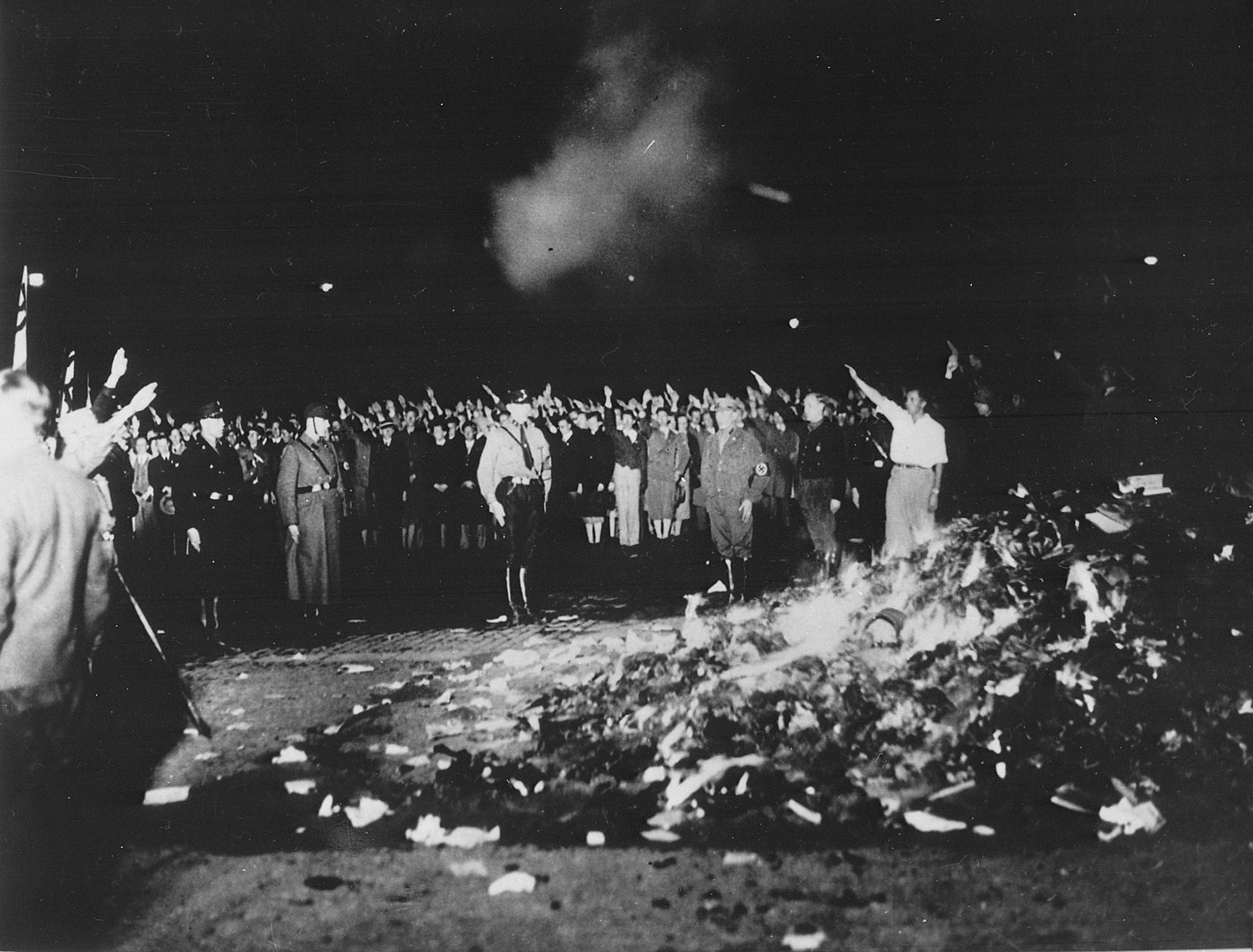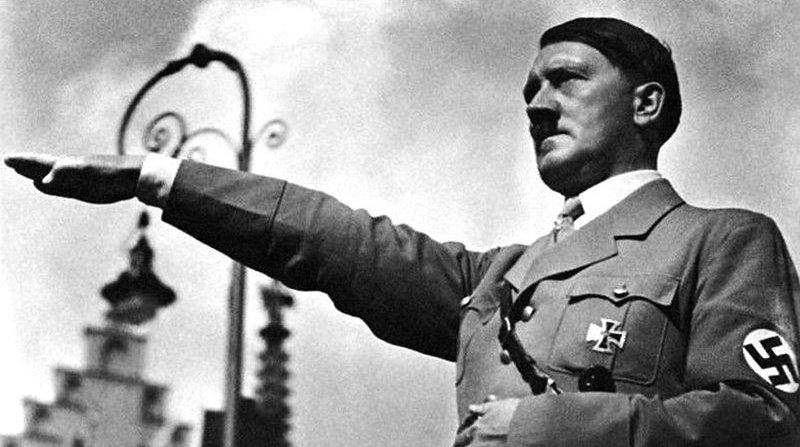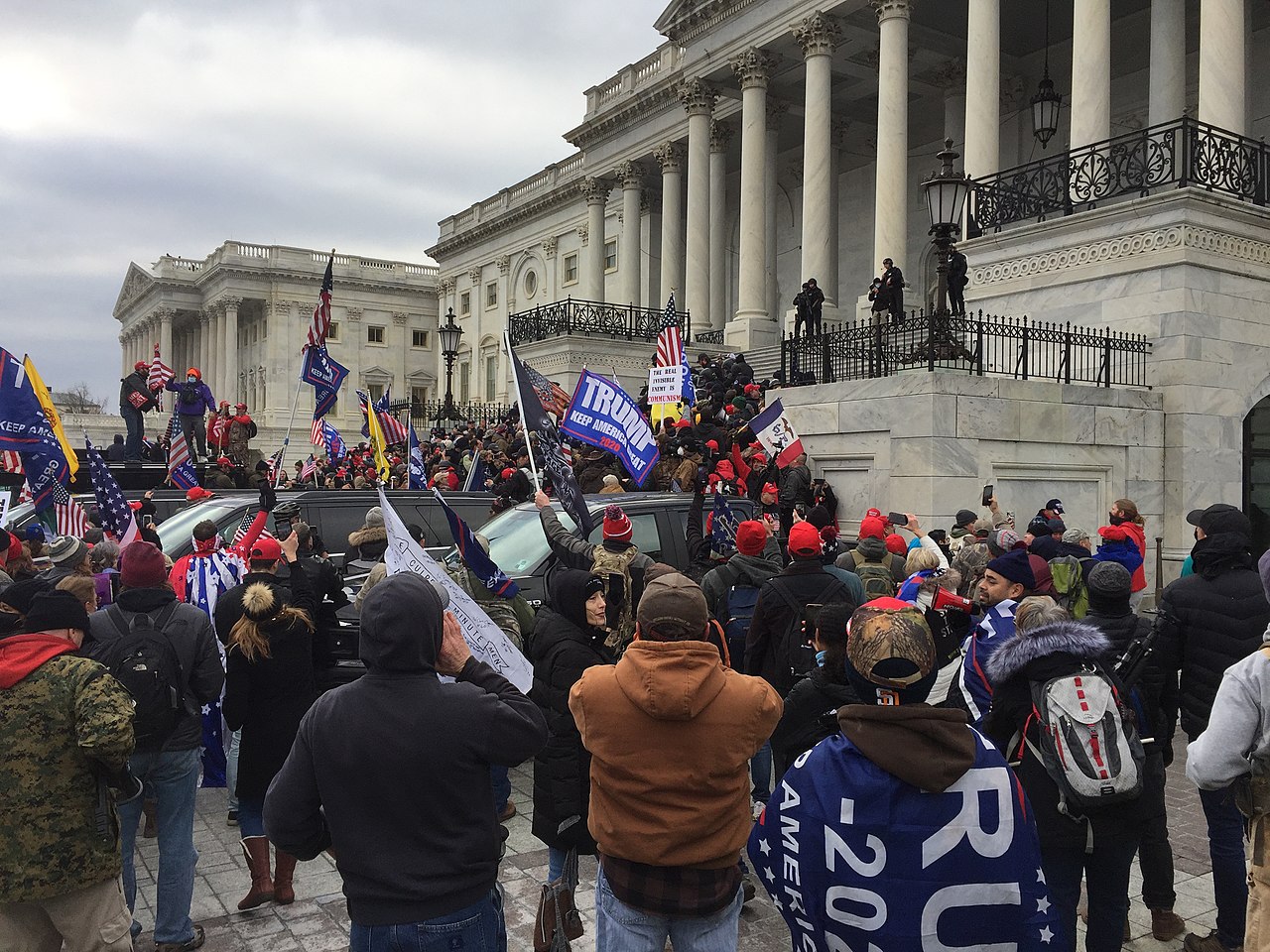Donald Trump: American God

By Shaun Tan
Founder, Editor-in-Chief, and Staff Writer
21/1/2021

Picture Credit: Joyce Boghosian / White House
It’s a natural law of online debates that, sooner or later, someone will end up trying to discredit the people who disagree with him by comparing them to the Nazis. In the last five years, and especially since the storming of the US Capitol on 6th January, many have used Nazi comparisons against supporters of former President Donald Trump.
But how fair are these comparisons? Well, in one crucial way, Trump supporters aren’t as bad as Nazis, since Trump hasn’t tried to murder millions of people on account of their race. And, in many other important ways, Trump supporters aren’t like Nazis at all – they’re much worse.
***
After the Nazis were defeated in WWII, and the full scale of their crimes became apparent, the world, and the German people in particular, tried to come to terms with how a regime as monstruous as the Third Reich could have taken power in 20th Century Germany, a country which was supposed to be so cultured and so civilized, which had produced so much creative genius. How could its people have redirected their collective moral compass so radically and so abhorrently? Future generations will likely ask similar questions with regard to the rise of Donald Trump in America – and I think those questions will be much harder to answer.

Nazi book-burning, Berlin, May 1933 (Picture Credit: German Federal Archives)
Whilst the Nazis were odious, it’s far easier to see why the Germans of the Weimar Republic might have turned to Nazism. They lived through one of the lowest points in their country’s history – forced to pay heavy war reparations to the countries that had defeated it in WWI, occupied and humiliated by the French when it didn’t pay them fast enough, wracked by an economic crisis that destroyed businesses and left millions unemployed, parts of the country itself carved out of it by the hated Treaty of Versailles – they turned to the Nazis, who promised to restore Germany’s standing and to get its people back to work (and did). By contrast, whilst it’s true that globalization had left many Americans behind, closing factories and shifting millions of jobs overseas, when America elected Trump in 2016 it had already been recovering from its economic crisis for six years and enjoying steady, if not spectacular, economic growth. (And, of course, the more powerful the Nazis became, the more difficult it got for people in Germany not to be Nazis, as the movement pervaded virtually every aspect of life, and being insufficiently supportive of it could have fatal consequences. Trump supporters can claim no such excuse, since they obviously remain free to reject him at any time.)
Furthermore, whilst there are some similarities between Adolf Hitler and Donald Trump, when you look at their records, it’s striking how much more Hitler had going for him.
When you compare Adolf Hitler and Donald Trump, it’s striking how much more Hitler had going for him.
Start with military service. Hitler served bravely in WWI. He frequently volunteered for the most dangerous missions, was wounded thrice in battle, and was awarded the Iron Cross First Class for his valor. “All who served with him, officer and fellow soldier alike, testify to his uncommon conscientiousness as well as personal courage,” noted military historian John Keegan in The Mask of Command: A Study of Generalship, and the general of Hitler’s regiment praised his “exceptional pluck…and the reckless courage with which he tackled dangerous situations and the hazards of battle.” By contrast, not only did Trump dodge the draft for the Vietnam War, claiming he had “bone spurs” in his heels, he demeans the service and sacrifice of war heroes, like John McCain, and insults their families, like the family of Humayun Khan.
The contrast in their records after they came into power is even more striking. Hitler’s achievements, until he invaded Russia in June 1941, were nothing short of astounding. He revived the German economy, and is credited with the German economic miracle of the 1930s, which saw unemployment fall from 6 million in January 1933 (when he became Chancellor of Germany), to 34,000 in September 1939 (the outbreak of WWII). Hitler’s diplomatic achievements were no less impressive. In just a few short years, he freed Germany from the shackles of the Treaty of Versailles and rearmed it, and took the Rhineland, Austria, and Czechoslovakia – all without firing a shot. Before Germany invaded France, most military experts back then would have bet on the French. “Because we all know the eventual results,” wrote Laurence Rees in The Dark Charisma of Adolf Hitler, “there is a tendency to read history backwards and to think that somehow an invasion of France would have seemed a sensible option for the Germans at the time. It didn’t.” Hitler’s top generals apparently thought so poorly of their chances that some of them even contemplated a coup against him to stop him from ordering them into a conflict they considered suicidal. Hitler ended up conquering France in six weeks. As Keegan concluded: “[N]o campaign of Napoleon’s, not even Austerlitz, had been so spectacular.” Had Hitler died in 1940, before he began to blunder and the war turned against him, he’d probably be remembered as one of Germany’s greatest leaders. When you consider his incredible successes up till that point, is it surprising that people thought him a genius, that people would follow him, that even those who hated him respected him?

Hitler
Compare that to Trump’s term as president, the greatest achievement of which is a relatively inconsequential tax cut, and which has largely been a string of unmitigated disasters – the erosion of America’s prestige and credibility, the alienation of its allies, the mishandling of the coronavirus pandemic to such a degree that it has wrecked both public health and the economy and made the richest, most powerful country in the world the one with the most infections and deaths. On the basis of this record, he’s easily the worst president in American history.
***

Painting by William Blake depicting the Devil and the Antichrist
I saw another beast, coming out of the earth. He had two horns like a lamb, but he spoke like a dragon…And he performed great and miraculous signs, even causing fire to come down from heaven to earth in full view of men. Because of the signs…he deceived the inhabitants of the earth.
Thus reads the description of the Antichrist in the Book of Revelation in the Bible, the archetype for the demagogue – the charismatic leader feared by democracies since antiquity. The greatest threat to democracies, it was thought, was the demagogue, a person of dark charisma and Mephistophelian dignity, fiendishly clever and devilishly charming, who would seem capable of miraculous feats, and who would use his eloquence to whip up the people’s passions…before leading them into disaster. (Former US President Barack Obama, for example, was called a demagogue by his critics, and both he and John F. Kennedy were suspected of being the Antichrist by some of their crazier detractors.)
It’s deeply ironic, therefore, that the most successful demagogue in American history is Donald Trump, an oaf and a buffoon, who, far from being eloquent, can barely speak in coherent sentences, who, far from seeming capable of miraculous feats, cannot even perform the simplest tasks without cocking them up. As Obama himself remarked in an interview: “[I]f we were going to have a right-wing populist in this country, I would have expected somebody a little more appealing.” What’s surprising is not so much that America fell for a conman; it’s that it fell for such an inept one.[1]
Why did so many Americans choose Trump in 2016 over Hillary Clinton, over a dozen other Republican candidates, people who, whatever their flaws, would at least have taken the job seriously and treated the office with a semblance of dignity? Why do so many of them remain mindlessly loyal to him even now? Out of all the people they could have bestowed this slavish devotion on, why him?
Over the past five years or so, I’ve heard more explanations of this than I care to remember. Only two seem to even partially make sense, and even they aren’t completely satisfying. The first is that, despite the gulf between Trump Tower and Middle America, despite the fact that Trump feels nothing but contempt for people like them, Republican voters identify with him – because they too are crude and mean, because they too, if they were billionaires, would gilt their toilets in gold.
The second is that Republican voters have come to hate politicians so much that they’ll support the person who seems least like a typical politician. That, like the Germans who turned to Hitler, they were so sick of the hypocrisy of “respectable politicians” and “respectable society” that they voted for someone who was the polar opposite of that, someone who, with his barefaced bigotry, cruelty, and megalomania, was at least honest about who he was. “What a temptation to flaunt extreme attitudes in the hypocritical twilight of double moral standards,” wrote the political theorist Hannah Arendt, describing this phenomenon in The Origins of Totalitarianism, “to wear publicly the mask of cruelty if everybody was patently inconsiderate and pretended to be gentle, to parade wickedness in a world, not of wickedness, but of meanness!” Just as some theorize that the Roman emperor Caligula proposed appointing his horse consul, not out of insanity, but out of a desire to insult the senators, who he hated, thus insinuating they were so worthless that a horse should be their superior, perhaps people voted for Trump to send the politicians they hated a similar message: that they were so contemptible that even a cheat and a clown like him deserved to lord over them. Perhaps Trump’s election was chiefly a protest vote, a giant middle finger held up against the system.

Trump supporters storm the US Capitol, 6th January 2021 (Picture Credit: TapTheForwardAssist)
Neither of these explanations bode well for the future of the country.
Whatever the reason behind Trump’s uncanny appeal, his hold over most Republican voters can only be described as cultlike. There seems to be nothing he can’t get them to believe: not the most patent nonsense, the most outrageous lies, the most ridiculous conspiracy theories. They stuck with him as he insulted women and minorities and war heroes and disabled reporters, and went on to elect him president. They stuck with him for the next four years, despite the hideous parade of willful incompetence and assaults on the republic that characterized his administration, and turned out in even greater numbers in 2020 to vote for him again. “Nearly half of the voters have seen Trump in all his splendor – his infantile tirades, his disastrous and lethal policies, his contempt for democracy in all its forms,” observed Tom Nichols in The Atlantic, “and they decided that they wanted more of it.” They stuck with him even after he instigated a mob to storm the Capitol (even now, 87% of Republican voters say they approve of Trump’s job performance). And they turned on and savagely attacked anyone who opposed Trump or denied him anything, even Republican Party luminaries like Mitt Romney, Paul Ryan, and Mitch McConnell. Trump is more sacred to them than the Constitution he has repeatedly tried to violate, and the conservative values he flouts on a daily basis. Trump’s 2016 boast that he could “stand in the middle of Fifth Avenue and shoot somebody” without losing any voters now seems less a boast than a statement of fact.
Trump’s hold over most Republican voters can only be described as cultlike.
This fanaticism has made Donald Trump arguably the most powerful president in the history of the United States. He is more powerful than any of his predecessors were, more powerful than Franklin Delano Roosevelt, maybe even more powerful than George Washington himself. After all, if any of them had blatantly betrayed their oath of office, invited a hostile foreign power to tilt an election, refused to concede an election they obviously lost, pressured authorities to misreport the election results, encouraged a mob to storm the legislative chamber to prevent lawmakers from executing their duties, and gave people serious cause to doubt their sanity, would their supporters not have abandoned them? Only Trump could do all that and get away with it. His supporters look at him with the fervor due not so much to a president but to a god, invincible and infallible, who deserves the credit for everything and the blame for nothing, entitled to undying adulation no matter how sorely their faith in him is tested.[2]

Donald Trump depicted as the God-Emperor of America (Picture Credit: Harge)
For this reason, Trump is likely to remain immensely powerful even now that he’s left the White House, with the ability to push his agenda and his successors, act as a kingmaker, split the country, nudge it down the ruinous course he set it on, maybe even retake the presidency. Stopping him will require breaking his hold over Republican voters, which will likely be immensely difficult, as difficult as coaxing them out of a cult, or, indeed, out of a religion.
Trump’s support amongst Republican voters has proven to be extremely resilient, impervious to his failure to deliver results, because as journalist Jonathan V. Last noted, they don’t really care about policy outcomes anymore. “[T[here was a large bloc of Republican voters who didn’t give a crap about small government or entitlement reform or regulating Big Tech,” Last observed. “They just wanted to hurt the people they hated and feel like they were part of something big.”
Trump’s support is also impervious even to irrefutable proof of his countless falsehoods due to, to borrow a phrase from Arendt, “a curiously varying mixture of gullibility and cynicism.” Arendt’s description of this strange dichotomy, in reference to totalitarian mass movements, has eerie parallels to Trump supporters today:
Mass propaganda discovered that its audience was ready at all times to believe the worst, no matter how absurd, and did not particularly object to being deceived because it held every statement to be a lie anyhow. The totalitarian mass leaders based their propaganda on the correct psychological assumption that, under such conditions, one could make people believe the most fantastic statements one day, and trust that if the next day they were given irrefutable proof of their falsehood, they would take refuge in cynicism; instead of deserting the leader who had lied to them, they would protest that they had known all along that the statement was a lie and would admire the leaders for their superior tactical cleverness.
Trump’s support is impervious even to irrefutable proof of his countless falsehoods.
Anyone who’s seen the kind of Trump supporter, who, when faced with undeniable evidence of their Dear Leader’s falsehoods, instead of calling the evidence fake, affects a stance of semi-irony, and maintains that his words aren’t meant to be taken literally, that he was just “trolling” people, and that, anyhow, they don’t really care about what he says (recall how Trump’s former communications director, Anthony Scaramucci, advised people not to take his boss literally but to take him “seriously” and “symbolically”?) has seen this firsthand. This phenomenon indicates a strand of nihilism within the Trump movement, a denial of all values, including that of truth itself.
The remedy to this is beyond the scope of this essay, but it will likely involve persuasion on the emotional level: since Republican voters’ support for Trump is irrational, and you can’t reason them out of something they didn’t reason themselves into. It will require Democrats to reach out to those who think differently, instead of alienating them with their own special brand of far-left craziness. Most of all, it will depend on such dubious figures as Senate Minority Leader Mitch McConnell: whether he will fight for principle and whether he can wrest back control of the Republican Party and excise Trump’s taint from it. That battle is only just beginning.
[1] Bernie Madoff was a conman. He sold snake oil in the form of investments in his pyramid scheme, but he did it so skillfully, made it seem so exclusive – like he didn’t even want people’s business – that he had people queuing up to invest with him. Trump, by contrast, is the snake oil salesman who’d run at you waving his hands and yelling: “BUY MY SNAKE OIL – BEST SNAKE OIL IN THE WORLD, BELIEVE ME! CURES ANYTHING, EVEN AIDS! ONLY LOSERS DON’T BUY MY SNAKE OIL! DO YOU WANT TO BE A LOSER? BUY IT, BUY IT, BUY IT!” – the kind of person most people with any sense would run away from if they saw him in the street.
[2] Incidentally, if any good has come out of Trump’s presidency, it’s that it’s put paid to the notion, sometimes advanced by conservatives, that atheism makes people more susceptible to totalitarian dictatorship because the absence of religious belief leaves a “God-shaped hole” in their psyches that a dictator can easily fill. They usually cite Soviet Russia, China, and North Korea as evidence. As we can see, though, this is not true, as so many of those who worship the proto-fascist Donald Trump are evangelical Christians.
